第74章 CHAPTER XI.(3)
It was, I think, in the summer of 1787, during one of the Trianon excursions, that the Queen of Naples--[Caroline, sister of Marie Antoinette.]-- sent the Chevalier de Bressac to her Majesty on a secret mission relative to a projected marriage between the Hereditary Prince, her son, and Madame, the King's daughter; in the absence of the lady of honour he addressed himself to me. Although he said a great deal to me about the close confidence with which the Queen of Naples honoured him, and about his letter of credit, I thought he had the air of an adventurer.--[He afterwards spent several years shut up in the Chateau de l'Oeuf.]-- He had, indeed, private letters for the Queen, and his mission was not feigned; he talked to me very rashly even before his admission, and entreated me to do all that lay in my power to dispose the Queen's mind in favour of his sovereign's wishes; I declined, assuring him that it did not become me to meddle with State affairs.
He endeavoured, but in vain, to prove to me that the union contemplated by the Queen of Naples ought not to be looked upon in that light.
I procured M. de Bressac the audience he desired, but without suffering myself even to seem acquainted with the object of his mission. The Queen told me what it was; she thought him a person ill-chosen for the occasion; and yet she thought that the Queen, her sister, had done wisely in not sending a man worthy to be avowed,--it being impossible that what she solicited should take place. I had an opportunity on this occasion, as indeed on many others, of judging to what extent the Queen valued and loved France and the dignity of our Court. She then told me that Madame, in marrying her cousin, the Duc d'Angouleme, would not lose her rank as daughter of the Queen; and that her situation would be far preferable to that of queen of any other country; and that there was nothing in Europe to be compared to the Court of France; and that it would be necessary, in order to avoid exposing a French Princess to feelings of deep regret, in case she should be married to a foreign prince, to take her from the palace of Versailles at seven years of age, and send her immediately to the Court in which she was to dwell; and that at twelve would be too late; for recollections and comparisons would ruin the happiness of all the rest of her life. The Queen looked upon the destiny of her sisters as far beneath her own; and frequently mentioned the mortifications inflicted by the Court of Spain upon her sister, the Queen of Naples, and the necessity she was under of imploring the mediation of the King of France.
She showed me several letters that she had received from the Queen of Naples relative to her differences with the Court of Madrid respecting the Minister Acton. She thought him useful to her people, inasmuch as he was a man of considerable information and great activity. In these letters she minutely acquainted her Majesty with the nature of the affronts she had received, and represented Mr. Acton to her as a man whom malevolence itself could not suppose capable of interesting her otherwise than by his services. She had had to suffer the impertinences of a Spaniard named Las Casas, who had been sent to her by the King, her father-in-law, to persuade her to dismiss Mr. Acton from the business of the State, and from her intimacy. She complained bitterly to the Queen, her sister, of the insulting proceedings of this charge d'affaires, whom she told, in order to convince him of the nature of the feelings which attached her to Mr. Acton, that she would have portraits and busts of him executed by the most eminent artists of Italy, and that she would then send them to the King of Spain, to prove that nothing but the desire to retain a man of superior capacity had induced her to bestow on him the favour he enjoyed. This Las Casas dared to answer her that it would be useless trouble; that the ugliness of a man did not always render him displeasing; and that the King of Spain had too much experience not to know that there was no accounting for the caprices of a woman.
This audacious reply filled the Queen of Naples with indignation, and her emotion caused her to miscarry on the same day. In consequence of the mediation of Louis XVI. the Queen of Naples obtained complete satisfaction, and Mr. Acton continued Prime Minister.